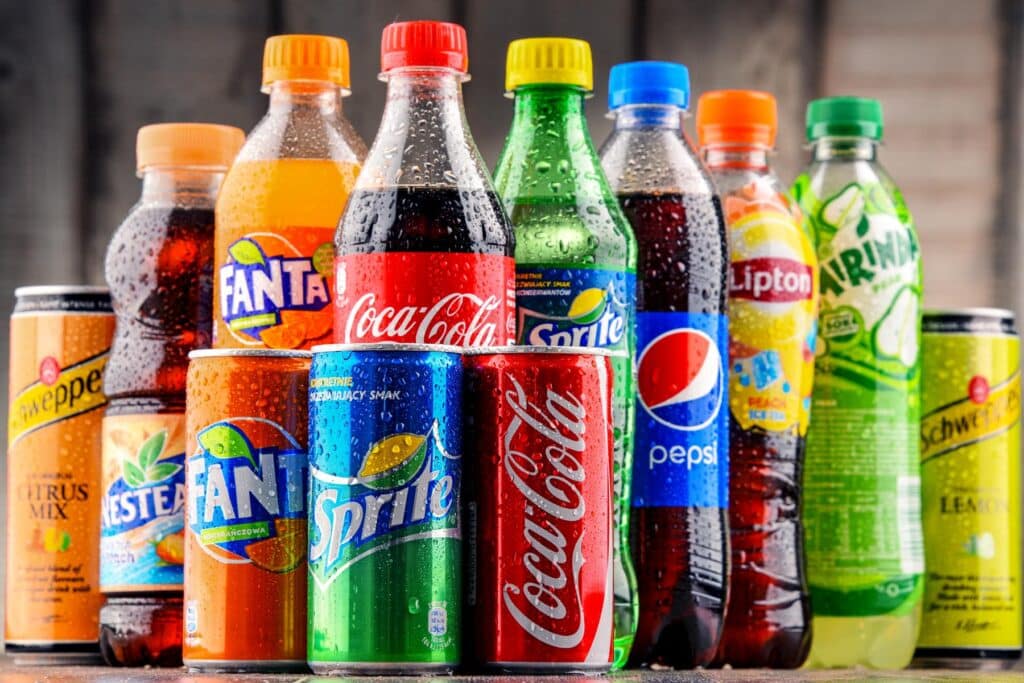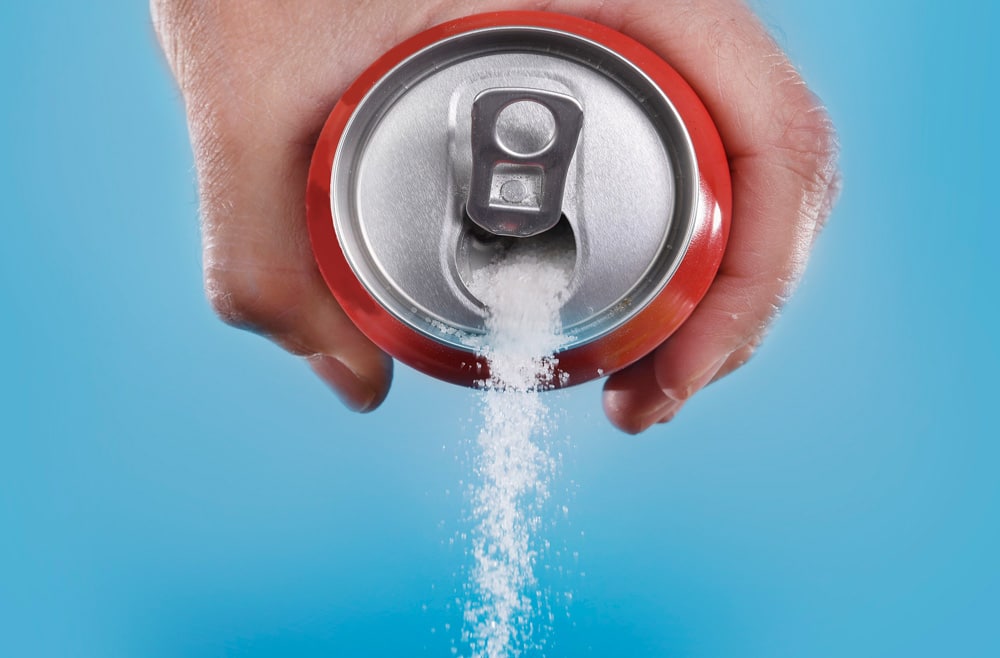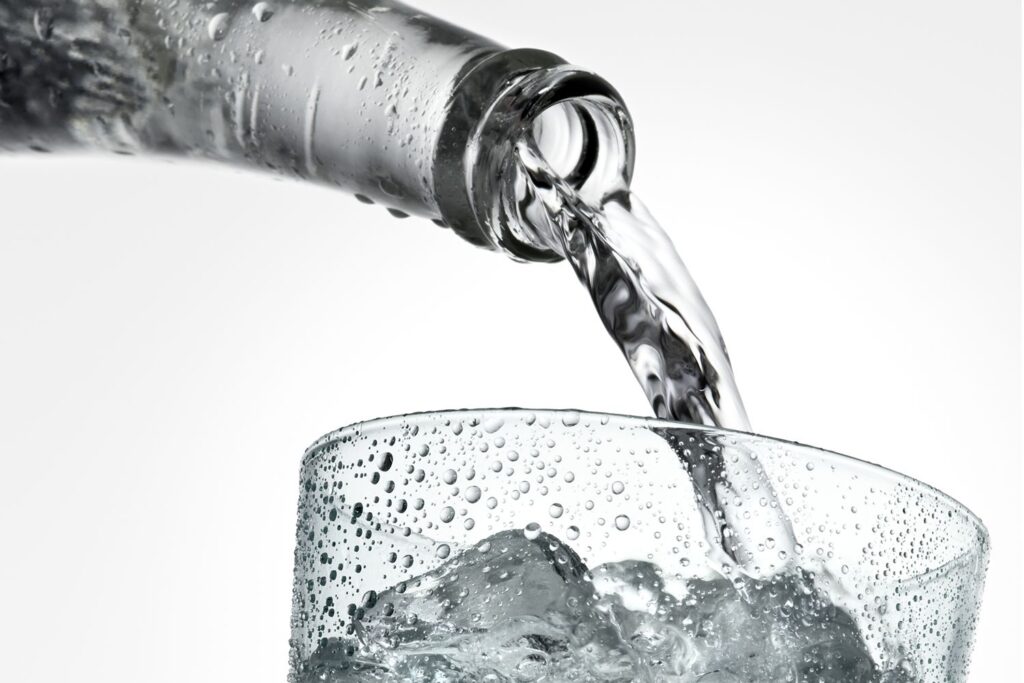Soda drinks, carbons drinks, fizzy drinks….. Believe it or not, we want to know the fuss about it. Why can’t people stop taking it, and most importantly, what makes it so irresistible?
Introduction
For years, soda has ruled the drinking game. A soft drink is a drink that usually contains carbonated water, a sweetener, and a natural or artificial flavouring. As it sounds, yes, it’s a lot of sugar, and not many can resist it.
I’ll tell you a short story- While I was in university, I could not eat anything without taking soda drinks. Some days, I would take two a day. One day, I sat down and thought about my life, “Why am I so addicted to this?” and what could be the effect?
The sweetener may be a sugar, high-fructose corn syrup, fruit juice, or a sugar substitute. some combination of these. Soft drinks may also contain caffeine, colourings, preservatives, and/or other ingredients.
SEE ALSO:
- 21 Kerala Famous Food
- How many Quarts in a Gallon (Food Measurements)
- 10+ Worst Nigerian Food Combos You Should Definitely Try
- 4 Food Synergy Ideas That Promote Health
History of soft drinks

English clergyman and scientist Joseph Priestley is nicknamed “the father of the soft drinks industry” for his experiments on gas from the fermenting vats of a brewery. In 1772 he demonstrated a small carbonating apparatus. With the aid of a pump, water might be more highly impregnated with fixed air.
Soft drink is attributed to many scientists, such as Flemish scientist Jan Baptista van Helmont, who had used the term ” gas” to used in his reference to the carbon dioxide content.
Numerous reports of experiments and investigations were included in the Philosophical Transactions of the Royal Society of London in the late 1700s, including the studies of Stephen Hales, Joseph Black, David Macbride, William Brownrigg, Henry Cavendish, and Thomas Lane.
Thomas Henry, an apothecary, attributed the first production of carbonated water, which he made in 12-gallon barrels using an apparatus based on Priestley’s design. Swiss jeweller Jacob Schweppe determined to make a similar device.
By 1794 he was selling his highly carbonated artificial mineral waters to his friends in Geneva; At first, bottled waters were used medicinally, and in 1820, there were improvements in manufacturing and allowed a much greater output, and bottled water became popular.
This later led to John Pemberton 1886, a pharmacist in Atlanta, Georgia, inventing Coca-Cola, the first cola drink.
SEE ALSO:
- 60 Truth or Drink Questions For Your Next Hangout
- 15+ Best Mexican Drinks to Pair with your Favourite Dishes
- Pornstar Martini: Why Is It Called a Porn Star Martini?
Properties of soda

Soft drinks, or rather carbonated drinks as they may be called, have long been criticized for providing no nutritional value and contributing to the global epidemics of diabetes and obesity. However, the popularity of these drinks has continued to rise in the face of health concerns. The following are the properties of these very loved drinks.
SEE ALSO:
- 20 Healthy Smoothie Recipes for a Delicious and Energizing Breakfast”
- How to Become a Sugar Daddy in Nigeria
Sugar
As you can detect, the sugar content of most soft drinks is between 30 and 60 grams. In North America, soft drinks are often sweetened with high fructose corn syrup, which many health experts believe does even more damage than sugar, especially when consumed in high quantities.
SEE ALSO: Junk Food: Why?
Caffeine
Did you know that Mountain Dew contains the highest levels of caffeine amongst popular soft drinks, at 54 and 53 milligrams? While Sprite, 7-up and, shockingly, Fanta have zero milligrams of caffeine. Regular brewed coffee has between 95 and 200 milligrams.
SEE ALSO:
Artificial ingredients
Artificial sweeteners, flavours, colours, and preservatives are present in many soft drinks. Citric acids are generally used to give a sweet flavour which also prevents the drinks from spoiling.
SEE ALSO:
- Black Eyed Peas Recipe
- 20+ Best Chocolate Cake Design Ideas
- 4+ Easy Fish Pie Recipe You Should Try Out This Year
Sweeteners
Sweeteners like aspartame and Sucralose are frequently used in diet soft drinks. Various studies have shown that consuming either regular drinks can increase your risk of metabolic syndrome by 44 per cent. Additionally, lab tests have also demonstrated an increased risk of cancer in lab rats consuming it.
SEE ALSO:
- Suya! Nigeria’s Best Snack
- How to make Sushi Burrito: Homemade Sushi Recipe
- Best Vegetarian Recipes Just for You
- Gluten-Free Pancakes Recipe (Best Vegan Option)
Soda Drinks: Health and regulatory issues

Now, there are very issues attributed to Soda drinks, especially if it is taken on a regular basis. I believe that a little soda drink once in a while is not bad, but! remember that saying, “So much of everything is bad?”
This is the case for soda drinks.
The regular consumption of soft drinks has been associated with multiple chronic health conditions. These increased risks are largely due to the ingredients, especially sugar. Soda exceeds the properties of sugar in people.
According to the American Heart Association, women should consume no more than 25 grams of added sugar per day and men 38 grams per day. Mind you, sugar exceeds the gram in soda drinks.
Consumption increases the risk of metabolic syndrome and type 2 diabetes. It is said that both men and women that regularly drink are at increased risk of coronary heart disease and premature death. It also increases the risk of heart disease and stroke in women.
As known popularly, the consumption of soft drinks is linked to weight gain, obesity, and tooth decay. Sugar-free soft drinks also have been associated with dental erosion.
Many countries have given a debate their soda drinks consumption. In January 2014, Mexico became one of the first countries to impose a nationwide revenue-raising tax on soft drinks containing added sugar.
Later that year, Berkeley, California, became the first city in the United States where there was a tax on soda drinks. In 2015, authorities in San Francisco approved a measure that would require soft drink manufacturers to add health warnings to soft drink labels, similar to the health warnings displayed on labels for alcohol and tobacco products.
Despite the known health risks of soft drink consumption, many people still believe that it has a lot of advantages.
SEE ALSO: How Many Pints in a Quart? (Liquid Measurement)
The Advantages of Soft Drinks

- Caffeinated soda provides an energy boost. The caffeine may offer some health benefits and is said to protect against Parkinson’s disease, stroke and Type 2 diabetes.
- Soda is often derided for containing high fructose corn syrup, which has been linked to increased triglyceride levels and inflammation.
- Soda is better as a treat than a staple. it’s a popular partner to a piping-hot slice of pizza. Depending on where you are, finding a bottle of soda may even be easier than finding a bottle of water.
SEE ALSO:
Should You Stay Away from Soda?

Well… What do you think? If you are just like me, who used to take many soda drinks in a day, you may need to take a break. It’s time to step away from the soda.
Dr Eddie Rodriguez-Lopez, a primary care physician at Geisinger Medical Clinic Lock Haven, mentions that Soda drink is far from healthy and is the leading cause of obesity. Here are other reasons to stay away from soda.
SEE ALSO: Character.ai: All you need to Know
You’ll be more hydrated
Not many know that the caffeine in a sofa is diuretic that will actually dehydrate you and would strain you of water. This can have a negative effect on your kidneys. Do you want to fix this? Drink WATER. Water is always the best choice. If you prefer something with more flavour, try adding fresh fruit to your water.
SEE ALSO: 10 Amazing Fruits That Boost s3xual Prowess
Your teeth will thank you
Switching away from soda will give you something to smile about: No more sugar and acid eating away at your tooth enamel which protects against tooth decay. Cutting out soda spares your enamel, which protects your teeth from decay. Talk to your dentist if you notice your teeth feel very sensitive.
SEE ALSO: Best Teeth Whitening Kits In Nigeria
You’ll cut your sugar and calorie intake
So when you decide not to drink that 12-ounce can of soda, you’ve saved yourself about 140 calories and 32 grams of sugar. By lowering your sugar and calorie intake, you lower your risk for weight gain and other metabolic issues like high blood pressure — metabolic changes that can make it harder to burn fat and lose weight.
SEE ALSO: Motivational Quotes For Your Weight Loss Journey
You’ll lower your diabetes risk
Drinking one to two sugary drinks every day increases your risk of Type 2 diabetes by about 25%, so saying no to soda drinks is a good way to lower that risk. Excessive intake of sugar causes stress on the pancreas, which can lead to insulin resistance, and in turn, diabetes.
SEE ALSO: How to Manage Diabetes (A Complete Guide)
Your risk for heart disease drops
This is very important because it lowers your risk for heart disease. One study concluded that soda drinkers may have up to a 20% higher risk of coronary heart disease. Quitting soda would be the best thing to do if you’re at risk of having heart disease.
SEE: 50+ Sorry Quotes for You: Express Apologies with Heartfelt Words
Conclusion
I know it may be difficult to stop soda especially if you’re used to taking it so much. Starting small should help. Limit yourself to two soda drinks per week, and soon, you’ll wonder why you really needed it. If you’re particular about flavour in drinks, I advise that you add fruit to your water- you can use lime or lemon, which are vastly popular.
You can also consider switching to a fizzy alternative, like sugar-free sparkling water or seltzer. You may have withdrawal symptoms like headaches, but don’t worry! By taking small steps, you’ll set yourself up for long-term success — and your body will enjoy all the benefits.
SEE ALSO:





